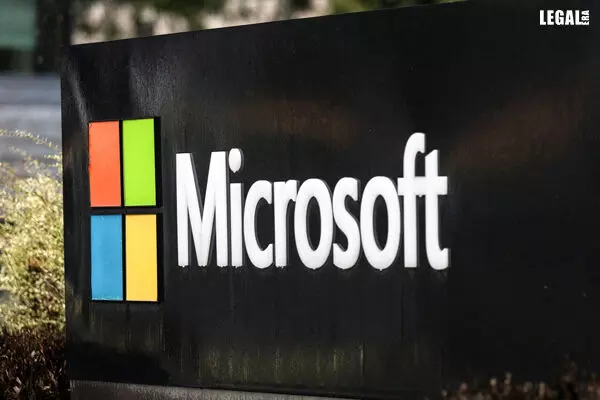- Home
- News
- Articles+
- Aerospace
- Agriculture
- Alternate Dispute Resolution
- Banking and Finance
- Bankruptcy
- Book Review
- Bribery & Corruption
- Commercial Litigation
- Competition Law
- Conference Reports
- Consumer Products
- Contract
- Corporate Governance
- Corporate Law
- Covid-19
- Cryptocurrency
- Cybersecurity
- Data Protection
- Defence
- Digital Economy
- E-commerce
- Employment Law
- Energy and Natural Resources
- Entertainment and Sports Law
- Environmental Law
- FDI
- Food and Beverage
- Health Care
- IBC Diaries
- Insurance Law
- Intellectual Property
- International Law
- Know the Law
- Labour Laws
- Litigation
- Litigation Funding
- Manufacturing
- Mergers & Acquisitions
- NFTs
- Privacy
- Private Equity
- Project Finance
- Real Estate
- Risk and Compliance
- Technology Media and Telecom
- Tributes
- Zoom In
- Take On Board
- In Focus
- Law & Policy and Regulation
- IP & Tech Era
- Viewpoint
- Arbitration & Mediation
- Tax
- Student Corner
- AI
- ESG
- Gaming
- Inclusion & Diversity
- Law Firms
- In-House
- Rankings
- E-Magazine
- Legal Era TV
- Events
- News
- Articles
- Aerospace
- Agriculture
- Alternate Dispute Resolution
- Banking and Finance
- Bankruptcy
- Book Review
- Bribery & Corruption
- Commercial Litigation
- Competition Law
- Conference Reports
- Consumer Products
- Contract
- Corporate Governance
- Corporate Law
- Covid-19
- Cryptocurrency
- Cybersecurity
- Data Protection
- Defence
- Digital Economy
- E-commerce
- Employment Law
- Energy and Natural Resources
- Entertainment and Sports Law
- Environmental Law
- FDI
- Food and Beverage
- Health Care
- IBC Diaries
- Insurance Law
- Intellectual Property
- International Law
- Know the Law
- Labour Laws
- Litigation
- Litigation Funding
- Manufacturing
- Mergers & Acquisitions
- NFTs
- Privacy
- Private Equity
- Project Finance
- Real Estate
- Risk and Compliance
- Technology Media and Telecom
- Tributes
- Zoom In
- Take On Board
- In Focus
- Law & Policy and Regulation
- IP & Tech Era
- Viewpoint
- Arbitration & Mediation
- Tax
- Student Corner
- AI
- ESG
- Gaming
- Inclusion & Diversity
- Law Firms
- In-House
- Rankings
- E-Magazine
- Legal Era TV
- Events
U.S. District Court Temporarily Halts Microsoft acquisition of Activision

U.S. District Court Temporarily Halts Microsoft acquisition of Activision
The U.S. District Court has granted the Federal Trade Commission's (FTC) prayer to temporarily block Microsoft Corporation’s acquisition of video game maker Activision Blizzard and listed the hearing for the next week.
The U.S. District Judge Edward Davila had scheduled a two-day evidentiary hearing on request forwarded by FTC for a preliminary injunction for June 22-23 in San Francisco.
The Court order halted Microsoft’s $69 billion deal which was scheduled to be closed on 16th June.
The FTC, which enforces antitrust law had requested an administrative judge to block the transaction in early December. An evidential hearing in the administrative proceeding is set to begin on 2nd August.
The Federal Court is set to decide whether a preliminary injunction is necessary or not which would last during the administrative review of the case. The FTC sought the temporary block on 12th June.
Judge Davila while issuing the temporary restraining order said, “it is necessary to maintain the status quo while the complaint is pending (and) preserve this court’s ability to order effective relief in the event it determines a preliminary injunction is warranted and preserve the FTC’s ability to obtain an effective permanent remedy in the event that it prevails in its pending administrative proceeding.”
Further, it was ordered that both Microsoft and Activision must submit legal arguments opposing a preliminary injunction by 16th June and the FTC must submit its reply by 20 June.
Davila said the bar on closing will remain in place until at least five days after the Court rules on the preliminary injunction request.
Previously, it was alleged by FTC that the transaction would result in giving Microsoft's video game console Xbox exclusive access to Activision games, leaving Nintendo consoles and Sony Group PlayStation pushing out of the competitive market.
Microsoft's bid to acquire the ‘Call of Duty’ video game maker was approved by the EU in May, however, the British competition authorities blocked the takeover in April.
Microsoft is of the view that the deal would benefit gamers and gaming companies alike, and has offered to sign a legally binding consent decree with the FTC to provide ‘Call of Duty’ games to rivals including Sony for a decade.



